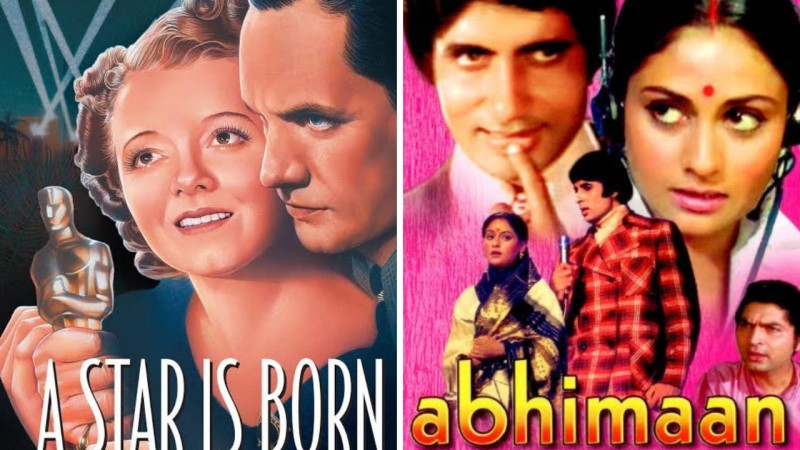
The love of reinvention and reinterpretation is a common characteristic of the film industry. Because it draws inspiration from the classic Hollywood movie "A Star Is Born" (1937), "Abhimaan" (1973) stands as a shining example of this creative phenomenon. In a story that examines the dynamics of love, ambition, and the difficulties of fame, "Abhimaan" adds a distinctive Indian twist to a tale that has enthralled audiences of all ages. In-depth analysis of the film adaptation's subtleties is provided in this article, which shows how it honors the classic source material while creating a unique cultural and thematic tapestry.
When "A Star Is Born," a 1937 motion picture directed by William A. Wellman, was released, it captivated audiences right away. The narrative of an established star's decline and the rise of a young talent resonated with viewers, paving the way for remakes and adaptations in various societies and eras. The story's overarching themes of love, ambition, and the difficulties that come with fame have guaranteed its enduring appeal.
Director Hrishikesh Mukherjee brought "Abhimaan" to the Indian silver screen in 1973 and infused it with themes that struck a chord with the audience there. The movie underwent a cultural transformation that allowed it to reflect the nuanced aspects of Indian society, relationships, and aspirations while maintaining the core plot of the original. The plot centers on Subir Kumar, a well-known singer, and Uma, a gifted young woman he discovers and develops. Subir Kumar is portrayed by Amitabh Bachchan, and Jaya Bachchan plays Uma.
The story's setting in the context of the Indian music industry, where Subir Kumar's character is a well-known singer, is one of the film "Abhimaan"'s most significant changes. Given the importance of music to Indian culture and artistic expression, this change gives the movie new layers of depth. S. D. Burman and Majrooh Sultanpuri's songs for the movie, which are melodic and emotive compositions that appeal to Indian sensibilities, further enhance the story.
"Abhimaan" explores the complex dynamics of gender and relationships in the Indian context. Uma's ascent to fame and the problems that come with it are a reflection of the difficulties that women frequently face in society. In addition, the movie looks at ego, jealousy, and the strain that success can put on relationships. All of these themes are handled sensitively enough to appeal to an Indian audience.
The chemistry between Amitabh Bachchan and Jaya Bachchan, who were married in real life, is one of "Abhimaan's" most notable features. This gave their performances a more sincere depth, which improved the movie's ability to evoke strong emotions. Audiences are drawn into the world of love, difficulties, and aspirations because of how authentically and heartfeltly their characters' relationships are portrayed.
The 1973 film "Abhimaan" is proof of how inventive adaptation can be in the world of film. The movie manages to forge its own distinct identity by incorporating Indian culture, music, and interpersonal dynamics into the timeless story of "A Star Is Born" while still drawing inspiration from it. The movie's success is based not only on how well it pays homage to the original work but also on how well it appeals to the sentiments and values of its Indian audience. "Abhimaan" stands as a symbol of cinematic craftsmanship that transcends cultural boundaries as viewers remain enthralled by the touching journey of Subir and Uma.
'Mera Joota Hai Japani' Surprises Audiences in Deadpool's Opener